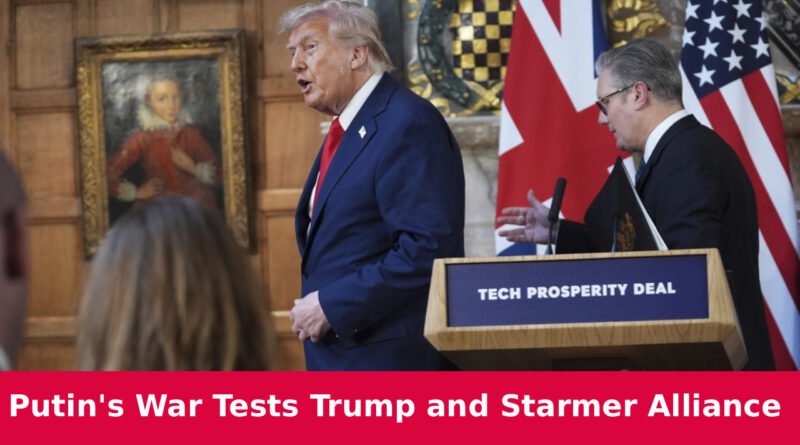Vladimir Putin’s War Tests Trump and Starmer Alliance
Despite a public display of mutual admiration and a desire to present a cohesive strategic vision, the newly forged relationship between President Donald Trump and British Prime Minister Keir Starmer faced its first significant test this week. The central point of divergence? Their approach to dealing with Russian President Vladimir Putin and the ongoing, brutal war in Ukraine. While both leaders expressed a shared ultimate goal of achieving a ceasefire, their methods for compelling Moscow to the negotiating table revealed a fundamental split in strategy and worldview, highlighting the complex challenges of international diplomacy.
The cracks in their united front were on full display during a joint press conference held outside London. Both men began from a common point: the desire to end the bloodshed. However, their paths immediately forked. President Trump, while expressing personal disappointment in Vladimir Putin, notably evaded direct questions about concrete future actions against the Kremlin. He referred to being let down by the Russian leader before shifting focus to his broader record of conflict resolution, stating he had worked to end “seven wars.” This ambiguity stood in stark contrast to the detailed and firm stance of his British counterpart.
Prime Minister Starmer, though gracious in acknowledging Trump’s past efforts, was unequivocal in his assessment of the recent escalation. He pointed directly to the aftermath of last month’s summit between Trump and Vladimir Putin as a catalyst for increased aggression, not de-escalation. “In recent days, Putin has shown his true face,” Starmer stated, detailing the largest aerial assaults since the initial invasion, resulting in countless civilian casualties. He framed these actions, including unprecedented violations of NATO airspace, as clear evidence that the Russian president is not acting in good faith for peace. This was an implicit but powerful rebuttal to any suggestion that appeasement or reduced pressure would be effective.
Further highlighting their differing philosophies, Starmer directly countered the notion that the war is a distant conflict. He listed recent Russian attacks on symbolic Western targets in Kyiv, including the British Council and the EU embassy, arguing that Vladimir Putin’s “recklessness” is a direct threat to the entire Western alliance. His conclusion was clear: the only language Moscow understands is overwhelming pressure. “It’s only when the President has put pressure on Putin that he’s actually shown any inclination to move,” Starmer asserted, making a pointed case for stronger, not weaker, economic sanctions.
President Trump’s closing remarks solidified the divide. When pressed on imposing further sanctions, he redirected the responsibility towards Europe, demanding that allies first halt all purchases of Russian oil. “If the price of oil comes down, Putin’s going to drop out. He’s going to have no choice,” Trump argued, framing his own potential actions as conditional upon European compliance. This transactional view of alliance responsibility contrasted sharply with Starmer’s call for a unified and immediate escalation of pressure, setting the stage for a complex diplomatic dance centered on the actions of Vladimir Putin.
Go To Main Page

